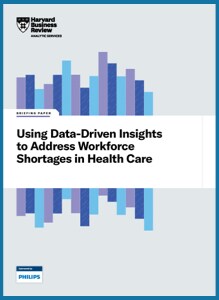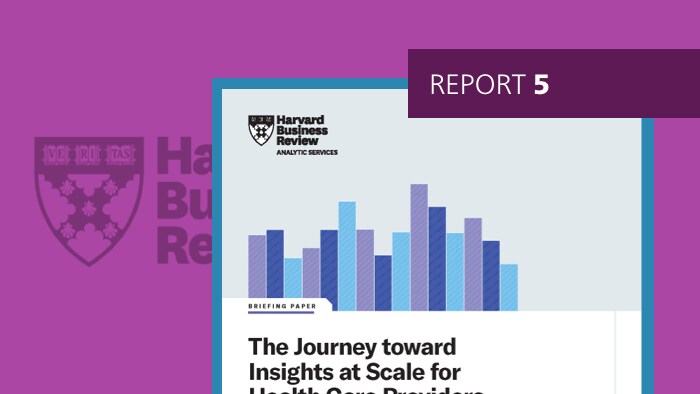December 6, 2022 by Philips Reading time: 2-3 min
Harvard Business Review Analytic Services Report: Using Data-Driven Insights to Address Workforce Shortages in Health Care
Overcoming workforce challenges is critical to providing quality patient care. Improving the staff experience, resource utilization and talent retention are key to addressing this pressing issue. Data-driven technologies, including analytics dashboards enabled by artificial intelligence, can help ease the strain of care delivery by streamlining operations and enhancing clinical workflows. Health care executives realize the importance of investing in advanced technology systems and the support, training and resources required to successfully implement and leverage them.
In this Harvard Business Review Analytic Services report, C-Suite leaders share examples of how they’re bringing data-driven insights to care pathways more easily via strategic partnerships to confront health care workforce shortages. The report includes ways in which hospitals are utilizing data analytics to provide greater visibility into the demand for services and better management of clinical assets. It also explores how health care executives and clinical leaders can optimize those systems to benefit both patients and the staff delivering care.
Currently, we are chosen by our employees, more than we choose them… A university hospital that does not innovate, that isolates itself and abandons its mission to transform patient care pathways and develop talent will inevitably become less attractive. Its best staff members will lose motivation or will be tempted to go elsewhere.”
Raymond Le Moign
CEO of Hospices Civils de Lyon, France

This report focuses on how data insights can help address health care workforce shortages, including:

Share this article



